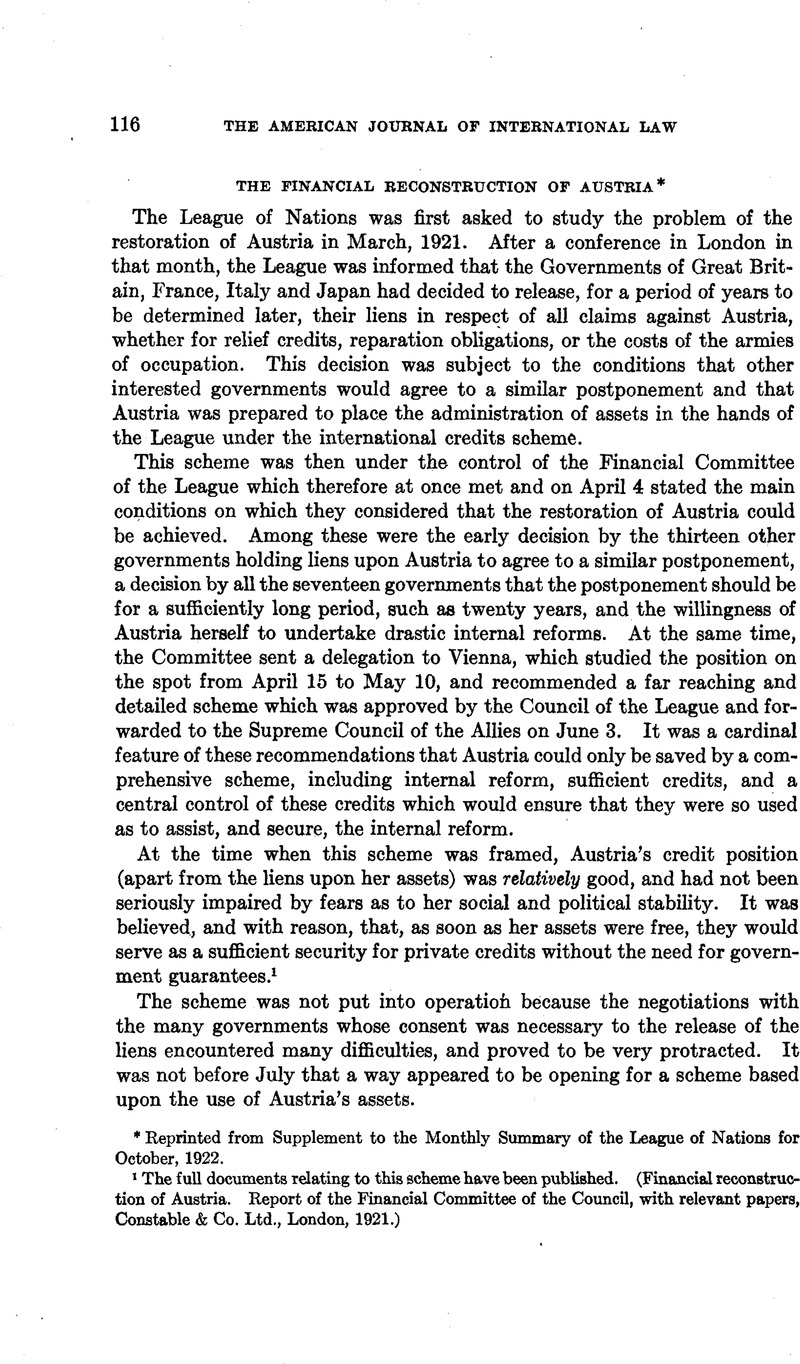Published online by Cambridge University Press: 06 June 2017

Reprinted from Supplement to the Monthly Summary of the League of Nations for October, 1922.
1 The full documents relating to this scheme have been published. (Financial reconstruction of Austria. Report of the Financial Committee of the Council, with relevant papers,Constable and Co. Ltd., London, 1921.)
2 The Members of the Financial Committee who were present during these discussior were M. Janssen (Chairman), M. Arai, M. Avenol, Sir Basil Blackett (replaced at lat(meetingsby Mr. Fass), Dr. Pospisil, Sir Henry Strakosch, with the addition of M. Maj giorino Ferraris, and M. A. Sarasin whowere co-opted for the purpose.
3 The Economic Committee constituted a special Sub-Committee for this purpose consisting of MM. Serruys, Dvoracek, Guarneri, Heer and Sir Hubert Llewellyn Smith.
4 The Financial Committee raised their original estimate of the budget deficit of 520 millions gold crowns to 650 millions in order to include the repayment of advances made this year by Great Britain, France, Italy and Czechoslovakia (see p. 117). It is necessary that all the guarantees should apply to the whole of this sum, in order that the loans, or more correctly,the “ loan” , though it will, of course, be issued in instalments at different times as Austria's needs and market conditions may determine, may have the same character and be based on the same securities. In order however that any states not interested in the repayment of the advances may limit their liability to a guarantee of a proportion o f the total sum required by Austria for her other needs (520 millions gold crowns), Great Britain, France, Italy and Czechoslovakia have entered into a special arrangement by which they cover the risk of all other guaranteeing countries so far as it relates to the additional sum of 130 millions. The effect of this rather technical arrangement is that any country can undertake to guarantee a stated percentage of the loan with an effective responsibility which is limited to that percentage o f a total 520 millions gold crowns, instead of 650 millions gold crowns, while the maximum liability of the four principal guaranteeing Powers reaches a total of eighty-four per cent instead of eighty per cent.
5 This, for the above reason, does not necessitate any effective liability on all other powers of more than twenty per cent on 520 millions (or sixteen per cent on 650 millions).